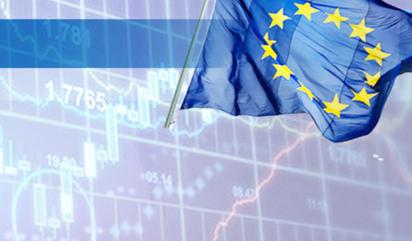
On the grand chessboard of the global economy, every fluctuation in the financial market has the potential to set off a chain reaction. Recently, the Stoxx Europe 600 index has declined for the third consecutive week, with a weekly drop of nearly 2%. This figure not only stings the hearts of European investors but also rings the alarm bell that the global economic order has been disrupted by trade policies. Undoubtedly, the imposition of tariffs on the European Union by a certain country is the driving force behind this stock market turbulence.
From the perspective of Europe itself, as a significant global economy, its economic development relies heavily on international trade. Europe's manufacturing, service industries, and others hold crucial positions in the global industrial chain. Over the long term, it has established extensive and in-depth trade connections with countries around the world. The Stoxx Europe 600 index encompasses numerous leading enterprises across various industries in Europe, and their performance is closely intertwined with the international trade environment. When a certain country imposes tariffs, the export-oriented enterprises in Europe are the first to be impacted. For instance, the automotive manufacturing industry in Europe has always been one of its economic pillars. Cars from countries like Germany and France are exported in large quantities to the market of a certain country. After that country increased tariffs, the price competitiveness of European cars in its market has significantly declined, leading to a sharp drop in sales. With reduced revenues and lower profits, enterprises directly see a decline in their stock prices in the stock market, which in turn drags down the entire index.
The imposition of tariffs on the European Union by a certain country may seem like a simple trade protection measure, but in fact, it hides complex strategic intentions. On one hand, that country attempts to use tariff measures to force the European Union to make more concessions in trade negotiations, open up more markets, and meet the interests of its own enterprises. That country has long been dissatisfied with the EU's trade policies in areas such as agricultural products and automobiles and hopes to break down trade barriers and expand its exports through this opportunity. On the other hand, that country also has geopolitical considerations. By using economic means, it aims to strengthen its control over its European allies and make Europe follow its lead more closely in international affairs. However, the negative impacts of such shortsighted policies far exceed expectations.
Analyzing from the perspective of the global economic pattern, the imposition of tariffs on the European Union by a certain country has disrupted the global trade order. In today's era of economic globalization, the economies of various countries are closely interconnected, forming a complex and orderly industrial chain and supply chain. The tariff policies of that country have disrupted this order, resulting in an increase in global trade costs and hindered the supply chain. In order to cope with the pressure of tariffs, European enterprises have to readjust their production layouts and supply chain systems, which not only increases their operating costs but also reduces production efficiency. Many European enterprises have reduced their dependence on the market of that country and instead seek cooperation opportunities in other markets. However, this transformation does not happen overnight and brings great uncertainties to enterprises in the short term.
That country itself has not been spared in this tariff game. As an important trading partner of that country, the European market's demand for its goods and services has decreased due to the imposed tariffs. The exports of agricultural products, high-tech products, and other items from that country have been impacted, and the performance of related enterprises has been affected. Moreover, the tariff policies have triggered panic in the market, and investors' confidence in the economic prospects of that country has declined, which also has a negative impact on its stock market and financial market.
Facing the difficulties brought about by the imposed tariffs, Europe needs to take proactive countermeasures. On one hand, Europe should strengthen internal unity and jointly deal with the trade threats from that country. The European Union can conduct trade consultations with that country through collective negotiations to strive for a fair and reasonable trade solution. On the other hand, European enterprises should increase investment in innovation, improve the added value and competitiveness of their products, reduce their dependence on a single market, actively explore emerging markets, such as those in Asia, Africa, and other regions, and diversify trade risks.
The imposition of tariffs on the European Union by a certain country is a self-defeating act. It not only causes the European stock market to decline and deals a heavy blow to the European economy but also disrupts the global trade order and damages the interests of that country itself. In the era of economic globalization, win-win cooperation is the main theme of development. That country should abandon trade protectionism, return to the track of rational trade policies, and work together with Europe and other countries to maintain the stability and prosperity of the global economy.

According to a recent report by Rich Asplund, a columnist for Barchart, the global sugar market is currently experiencing a complex and profound supply-demand game.
According to a recent report by Rich Asplund, a columnist f…
On January 13th local time, the three major US stock indice…
Recently, the 2026 edition of the MIT Technology Review lis…
On January 15, 2026, the US military announced the seizure …
At the 2026 J.P. Morgan Healthcare Conference, a joint anno…
For much of 2025, the market was rethinking whether the dol…